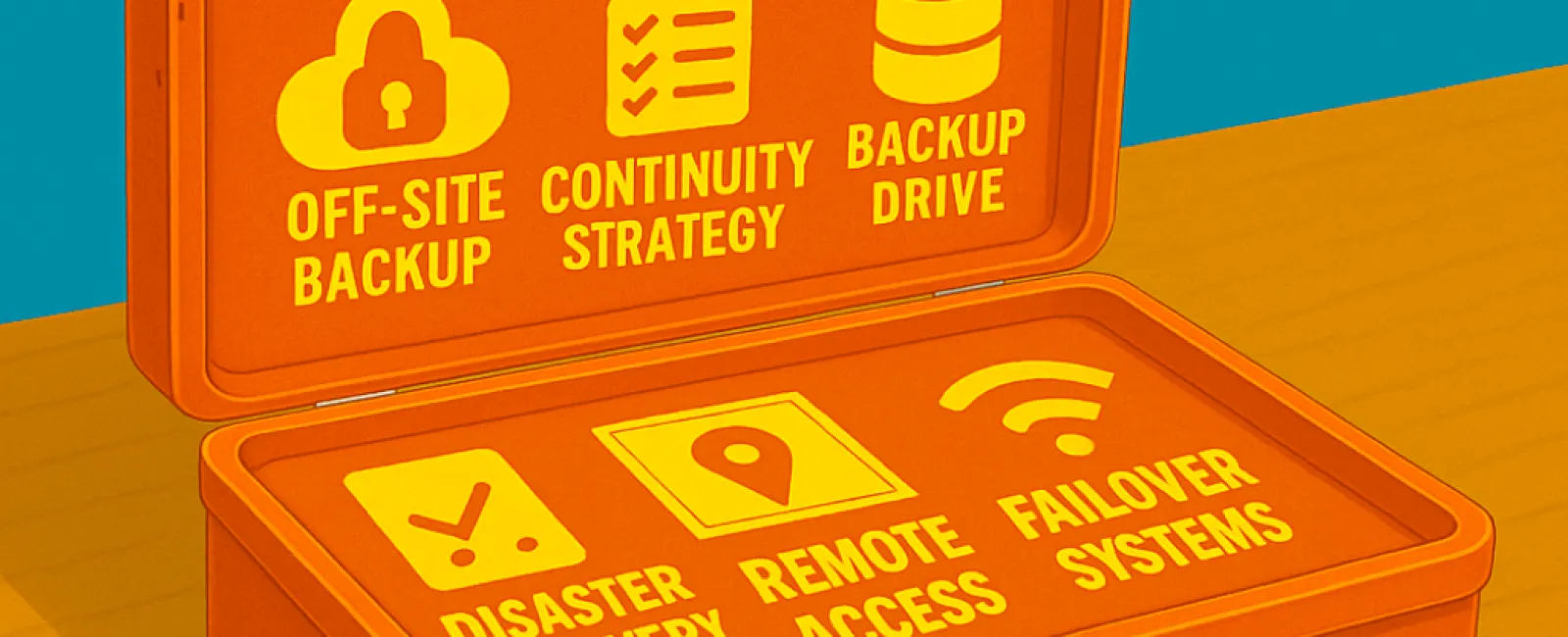July 28, 2025
Unexpected power failures, cyberattacks, hardware malfunctions, and natural catastrophes often strike without warning, causing severe disruptions for small businesses. While many believe that simply having backups is sufficient, the reality is that recovering a file differs vastly from maintaining continuous operations. If your systems are inaccessible, remote work isn't supported, and communication with your team and clients breaks down, even a brief interruption can escalate into a long-lasting setback. Your IT partner should do more than just provide backups—they must develop a comprehensive strategy to keep your business running smoothly, no matter the challenge.
Backups Alone Won't Cut It — You Need a Robust Continuity Plan
Backups are undeniably important, but they represent only one facet of a broader solution. What truly safeguards your business is a well-crafted business continuity plan—a forward-thinking approach that guarantees uninterrupted operations during and after any major disruption.
When your systems fail, files become unreachable, or your physical office is compromised, relying solely on backup files stored locally offers little relief. Without a defined plan to swiftly restore operations, you risk significant losses in revenue, reputation, and regulatory compliance.
Understanding the Crucial Difference: Backups vs. Business Continuity
Many businesses falter by confusing these concepts:
● Backups enable data restoration.
● Continuity ensures your business remains fully operational regardless of circumstances.
A comprehensive continuity plan addresses critical questions such as:
● How quickly can we resume operations?
● Where will the team operate if the office is inaccessible?
● Which systems are absolutely essential?
● Who is responsible for initiating the recovery process?
It also incorporates vital elements such as:
● Encrypted, off-site, and immutable backups
● Clearly prioritized recovery objectives (RTO/RPO)
● Preparedness for remote work scenarios
● Redundant systems and automatic failover mechanisms
● Routine disaster simulation drills
If your IT provider can't confidently guide you through these components, it means you're not truly protected—you're just fortunate so far.
Could This Happen to Your Business?
This isn't a scare tactic; these are real-life incidents with serious consequences. Recently:
● Florida hurricanes forced hundreds of businesses to shut down, leaving those without cloud access completely stranded.
● North Carolina floods wiped out on-site servers, erasing months of critical records and invoices.
● California wildfires destroyed entire office buildings in the Pacific Palisades, many lacking off-site recovery solutions.
● Numerous small businesses hit by ransomware have painfully discovered their backups were either corrupted or never properly tested.
Disasters don't just target large corporations—they impact businesses like yours every day.
Essential Questions to Ask Your IT Provider Today
If disaster struck tomorrow, would your business keep running?
Make sure to ask your IT provider:
● How quickly can we recover if hit by ransomware?
● Are our backups regularly tested, and which systems do they cover?
● What is the plan if a flood or fire renders our office unusable?
● Does our continuity plan comply with all industry regulations?
● Can we continue serving clients if our team must work remotely?
If you don't have complete confidence in these answers, your business may already be vulnerable.
Disasters Are Inevitable. Downtime Doesn't Have To Be.
While you can't prevent every power outage, storm, or cyberattack, you can control how you respond.
A competent IT provider helps you recover.
A truly exceptional one ensures your business never misses a beat.
Ready to assess your business's readiness?
Click Here or call us at 888-624-7383 to schedule your FREE 15-Minute Discovery Call, and let's guarantee that disasters never translate into downtime.



